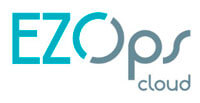In today’s fast-paced digital landscape, efficient and scalable data management is crucial for businesses across all industries. MongoDB, a leading NoSQL database, has revolutionized the way organizations handle data, offering a flexible and robust solution for modern application development. In this article, we will delve into the key features and benefits of MongoDB, shedding light on why it has become the preferred choice for businesses worldwide.
Flexible Data Model
One of the standout features of MongoDB is its flexible data model. Unlike traditional relational databases, MongoDB utilizes a document-based structure, allowing developers to store and manage data in a way that closely aligns with the application’s objects and data model. This flexibility simplifies the development process, enabling seamless integration with modern application architectures and providing greater agility in adapting to evolving business requirements.
Scalability and Performance
Scalability is a critical aspect of any database system, and MongoDB excels in this area. With its horizontal scaling architecture, MongoDB can effortlessly handle growing data volumes and user loads by distributing data across clusters of commodity hardware. This ensures high performance and availability, making it an ideal choice for applications that demand scalability without compromising on performance.
Rich Query Language and Indexing
MongoDB’s powerful query language and indexing capabilities empower developers to retrieve and manipulate data with ease. The database supports a rich set of query operators, allowing for complex and expressive queries. Additionally, MongoDB’s indexing features optimize query performance, enabling efficient execution of queries on large datasets, thereby enhancing the overall application responsiveness.
High Availability and Fault Tolerance
MongoDB’s built-in replication and automated failover mechanisms ensure high availability and fault tolerance. The database employs a replica set architecture, wherein data is replicated across multiple nodes, providing redundancy and eliminating single points of failure. In the event of a node failure, MongoDB automatically promotes a secondary node to primary, thereby minimizing downtime and ensuring continuous operation.
Comprehensive Data Security
Data security is paramount in today’s data-driven world, and MongoDB offers a comprehensive set of features to safeguard sensitive information. The database provides robust authentication mechanisms, role-based access control, field-level redaction, encryption at rest, and auditing capabilities, empowering organizations to meet stringent security and compliance requirements with confidence.
Unified Platform for Modern Applications
Beyond its technical capabilities, MongoDB serves as a unified platform for modern application development, integrating seamlessly with popular programming languages, frameworks, and cloud services. Its compatibility with containerization and orchestration tools further enhances its appeal, making it an ideal choice for building cloud-native and microservices-based architectures.
In conclusion, MongoDB’s key features and benefits position it as a leading choice for organizations seeking a modern, flexible, and scalable database solution. With its emphasis on flexibility, scalability, performance, security, and seamless integration, MongoDB continues to empower businesses to innovate and thrive in the digital era. Whether you are developing a new application or modernizing an existing one, MongoDB stands out as a versatile and reliable database solution that is well-equipped to meet the demands of today’s dynamic business environment.
